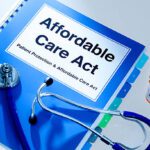Affordable Care Act Frequently Asked Questions

What is the Healthcare Insurance Marketplace?
The Marketplace is a new way to find quality health coverage. It can help if you don’t have coverage now or if you have it but want to look at other options. With one Marketplace application, you can learn if you can get lower costs based on your income, compare your coverage options side-by-side and enroll.
How does the Marketplace work?

- When you use the Healthcare Insurance Marketplace, you’ll fill out an application and see all the health plans available in your area. You’ll provide some information about your household size and income to find out if you can get lower costs on your monthly premiums for private insurance plans. You’ll learn if you qualify for lower out-of-pocket costs.
- The Marketplace will also tell you if you qualify for free or low-cost coverage available through Medicaid or the Children’s Health Insurance Program (CHIP).
- The Marketplace website walks you step-by-step through the online health coverage application. It keeps track of where you are and guides you through to the end. If you have to stop your application and come back later, the Marketplace lets you re-start where you left off. Useful information on each page explains the questions being asked and if you’ll need any forms or other documents.
- If you want live help while you apply, call the toll-free Marketplace support center (1-800-318- 2596/TTY: 1-855-889-4325) or chat with someone online at Healthcare.gov.
What if I don’t speak or read English? How can I apply?
If you need assistance in another language, you can also call the Marketplace, 24 hours a day, 7 days a week at 1-800-318-2596 (TTY: 1-855-889-4325) and they will assist you, with the assistance of a translator, for any other languages.
What is the Affordable Care Act?

Also known as “ObamaCare”, the comprehensive health care reform law was enacted in March 2010. The law was enacted in two parts: The Patient Protection and Affordable Care Act was signed into law on March 23, 2010 and was amended by the Health Care and Education Reconciliation Act on March 30, 2010. The name “Affordable Care Act” is used to refer to the final, amended version of the law.
What is a Certified Application Counselor?

A Certified Application Counselor is an individual that’s trained and able to help consumers as they look for health coverage options through the Marketplace. All Certified Application Counselors work for an organization that has been authorized by the Centers for Medicare and Medicaid Services to offer education and application assistance. The services are offered free to any consumer and Certified Application Counselors are required by law to be fair, accurate and unbiased. The services they provide include education regarding the Healthcare Marketplace and health insurance in general, as well as assistance completing the application for eligibility and enrollment forms. Post enrollment, appeals and exemptions assistance is also available. They will be known by different names depending on who provides the service and where they are located.
What do I need to do to apply for health insurance coverage?

You can go to www.healthcare.gov to complete an application and enroll or call the Healthcare Marketplace toll-free support center at 1-800-318-2596 or TTY: 1-855-889-4325.
Who qualifies for Marketplace coverage?
Everyone who is lawfully present in the United States and not currently incarcerated can apply for healthcare coverage through the Marketplace. When you use the Healthcare Insurance Marketplace you may be able to lower costs on monthly premiums with a subsidy called Advanced Premium Tax Credits (APTC). You may also be eligible for assistance with out-of-pocket costs, Cost Sharing Reduction, if your annual income is below 250% of the Federal Poverty Level (FPL).
When does Insurance coverage begin?
- For coverage through the remainder of 2024, you must qualify for a Special Enrollment Period. If you enroll, your coverage will begin the 1st of the following month in most circumstances.
- Open enrollment for 2024 coverage began on November 1, 2023, and ran through January 16, 2024. In order to get coverage that begins January 1, 2024, you must have enrolled by December 31, 2023. If you completed your enrollment between January 1, 2024, and January 16, 2024, your coverage would start February 1, 2024.
What do plans in the Marketplace cover?
- Insurance plans in the Marketplace are offered through private companies. They are all required to cover the same core set of benefits called “essential health benefits”. No plan can turn you away or charge you more because of a pre-existing condition. The insurance companies must cover treatments for these conditions. Plans can’t charge women more than men for the same plan. Many preventive services are covered at no cost to you.
- Essential health benefits must include items and services within at least the following 10 categories: ambulatory patient services; emergency services; hospitalization; maternity & newborn care; mental health & substance use disorder services, including behavioral health treatment; prescription drugs; rehabilitative & habilitative services and devices; laboratory services; preventive & wellness services & chronic disease management; pediatric services, including oral & vision care.
What information do I need to provide to enroll in the Marketplace?

- Social Security numbers for all household family members applying for coverage
- Document numbers for legal immigrants
- Employer & income information for every household member needing coverage (pay stubs, W-2)
- Policy numbers for any current health insurance plans covering household members
- Completed Employer Coverage Tool for every job-based plan for which you or a household member is eligible
Since FL did not adopt Medicaid expansion, if someone is below the Federal Poverty Level (FPL) how will they be able to be insured?
Florida has not expanded Medicaid to anyone under the Federal Poverty Level (FPL). If you don’t qualify for Medicaid under the state’s present rules, you can’t get lower costs on Marketplace coverage based on your income. You can choose to purchase a Marketplace plan, but you would have to pay its entire cost. However, if you are a Pinellas resident, you may qualify for medical care under the Pinellas County Health Program.
When is the deadline for obtaining insurance?
Open enrollment for 2024 ended January 16, 2024. Only if you meet the criteria for a “qualifying life event” (a change in your life such as moving to a new state, certain changes in income, changes in family size i.e., divorce, marriage, and a new baby) you may qualify for a Special Enrollment Period to enroll in a plan for this year. Open enrollment for 2024 ran from November 1, 2023, through January 16, 2024.
Do you have to get insurance through the Marketplace?
No, you may obtain private insurance by either meeting with an agent or going online and checking insurer’s websites for plans. Make sure they offer the plan you want in the state you reside in, as plans may differ between states. Ask if a plan meets “Minimum Essential Coverage” to purchase one with the same protections/services as one through the Marketplace.
What happens if I don’t get insurance?
- If an individual meets the eligibility criteria and does not carry insurance nor has an exemption, a tax penalty could come into play. You can face fines and penalties that will impact your tax return.
- As of January 1, 2019, the Individual Responsibility Payment is currently $0.
- If you’re uninsured for just part of the year, 1/12 of the yearly penalty applies to each month you’re uninsured. If you’re uninsured for less than 3 months, you don’t have to make a payment.
Is there any incentive to help with the cost of ACA?
Yes, there is a tax credit for those who are eligible. It is called the Advanced Premium Tax Credit (APTC). These individuals fall in the low to moderate income level. The credit can be paid directly to the insurance company to help defray the cost of monthly payments (premiums) or it can be claimed when you file your income tax return. More information can be found on the IRS website under Q&A and at www.healthcare.gov. There is also another subsidy called the Cost Sharing Reduction (CSR) that provides individuals and families who are making between 100% and 250% of the Federal Poverty Level (FPL) with assistance paying out-of-pocket costs.
What is the minimum/maximum salary for assistance/tax rebate?
- If your income is below 100% of the FPL and you don’t qualify for Medicaid under the state’s rules, then you can’t get lower costs on Marketplace coverage based on your income. You would have to pay the entire cost of a Marketplace insurance plan. However, if you are a Pinellas County resident, you may qualify for medical care under the Pinellas County Health Program.
- If your income is between 100% and 400% of the FPL, then you may be eligible for the Advanced Premium Tax Credits (APTC) for your Marketplace health coverage. As a result of the American Rescue Plan that passed in March 2021 APTC are available for 2021 and 2022 for consumers over 400% FPL and the savings calculations for all income levels are more generous. These savings have been extended through 2025 under the Inflation Reduction Act of 2022.
- If your income is over 400% of the FPL, then you are responsible for paying the full cost of your healthcare coverage. As a result of the American Rescue Plan that passed in March 2021 APTC are available for 2021 and 2022 for consumers over 400% FPL and the savings calculations for all income levels are more generous. The new calculations have been extended through the end of 2025 under the Inflation Reduction Act of 2022.
- If your income is between 100% and 250% of the FPL, then you may qualify for an additional subsidy that is called Cost Sharing Reduction (CSR). The Cost Sharing Reduction aids by lowering out-of- pocket costs, deductibles and out-of-pocket maximums.
What is the individual mandate?
- The individual mandate is part of the new health care law. It means that most people must have health insurance. If you can afford health insurance and do not have it, you might have to pay a penalty or fine called the “individual responsibility payment”.
- As of January 1, 2019, the Individual Responsibility Payment is currently $0.
How will I pay the penalty for not having health insurance?
The penalty is administered by the Internal Revenue Service (IRS) through the tax return system. In order to collect, the IRS will typically dock that amount from an individual’s tax return.
When will the penalties be enforced?
The penalty will be enforced by the IRS when you file your tax return.
Is there an asset limit for the ACA?
There is no asset limit for the ACA, but if your income is too low to pay for your own coverage, then you should apply for coverage under Medicaid or the Pinellas County Health Program and both have assets limits for coverage.
What income counts towards my ACA eligibility?

- When you fill out a Marketplace application, a number called “modified adjusted gross income” (MAGI) will be used. The MAGI is generally your household’s adjusted gross income, plus any Tax-exempt Social Security, interest and foreign income. It’s used to determine your eligibility for lower costs on Marketplace coverage and eligibility for Medicaid and Children’s Health Insurance Program (CHIP). You don’t have to figure out this income yourself – the math will be done for you when you apply through the Marketplace or your state agency. For Medicaid eligibility, it also matters if you’ve had a change in household income since your last tax return.
- For coverage in 2024, you will need to estimate for income, considering changes that you know may/will occur. You can make updates to your income throughout the plan year.
Who can get health insurance in the Healthcare Insurance Marketplace?
Most Americans can shop for health insurance through the Marketplace. To get health insurance through the Marketplace you must live in the United States, be either a US citizen or be lawfully present and not be currently incarcerated.
How much financial help can I get with the cost of my new insurance?
Many people will qualify for financial help. The same application that will be used to determine which health insurance options are available to you will also tell you how much financial help you can get. The amount of help is based on an individual’s or family’s income and works on a sliding scale from 100% of FPL to 400% of FPL. Some people will qualify for free or low-cost health insurance through Medicaid or the Children’s Health Insurance Program (CHIP). As a result of the American Rescue Plan that passed in March 2021 APTC are available for 2021 and 2022 for consumers over 400% FPL and the savings calculations for all income levels are more generous. These benefits have been extended through 2025 under the Inflation Reduction Act of 2022.
What else do I need to know about paying for health insurance?
- You and your health insurance company share your health care costs. You pay a set amount every month to the health insurance company (your monthly premium). If you are receiving a tax credit, you can choose to reduce the amount you pay towards your premium each month or pay the full premium and receive the credit the following year when you file your taxes.
- You and your health insurance company also share the cost of your medical treatments. For most treatments and/or doctor visits, you pay a co-pay or co-insurance, when you see a doctor or get medical care (like prescription drugs). You may also have to pay a certain amount of money, called the deductible, towards your covered health services each year. Once you have paid your out-of- pocket maximum, the health insurance company pays your remaining costs for that year.
Are there any people who are exempt from paying the penalty?

- You may not have to pay a penalty if any of these apply to you:
- Your income is below the tax filing limit
- You suffer a hardship that prevents you from being able to buy health coverage
- You are incarcerated
- The time you go without coverage is less than 3 months
- You have a religious objection
- You are an undocumented immigrant
- You are a member of a Federally Recognized Tribe
- You have health coverage through the VA or any other Federally sponsored health plan that meets ‘minimum essential benefits’ guidelines
- As of January 1, 2019, the Individual Responsibility Payment is currently $0.
What are preventive services?
- Preventive care helps to keep you from getting sick in the first place. The ACA makes it easier for you and your family to get preventive care so you can stay healthier and on top of things.
- All Healthcare Insurance Marketplace plans must cover an extensive list of preventive services at no cost to you. Preventive Services are routine healthcare that includes screenings, check-ups and patient counseling to prevent illness and disease. Examples of preventive services are mammograms, colonoscopies, blood pressure screenings, many vaccines and important screenings for cancer, diabetes and more.
What is guaranteed coverage?
- Guaranteed coverage means that everyone can buy health insurance. Before the new health care law, millions of Americans could not get health insurance because they had a pre-existing condition. Pre-existing conditions could include many physical and mental health illnesses or injuries (even if they were in the past), being pregnant or being born with a disability.
- Now you can buy health insurance no matter what the health problems you have now or have had in the past. Health insurance companies are not allowed to refuse to sell you insurance or charge you higher fees because you are sick now or have been in the past. The guarantee means you can buy health insurance.
- Guaranteed coverage does not apply to newly available Short-Term Plans, which do not need to comply with the consumer protections included in the ACA. These plans are only sold outside of the Marketplace and do not meet “Minimum Essential Coverage”.
Is dental or vision care available through the Marketplace?
- Dental and vision coverage is an essential health benefit, primarily for children. This means it must be available to your children as part of a health plan purchased through the Marketplace.
- Health plans are not required to offer dental or vision benefits to adults. However, there will be some health insurance options that do include dental and vision coverage for adults.
- Through the Marketplace, you’ll be able to see which plans include dental and vision when you compare the benefits and prices. If a health plan includes dental and vision coverage, you will pay one single monthly premium for everything under that health plan.
- In some cases, stand-alone dental and vision plans will be offered. You may want to choose this option in addition to the health insurance plan you select if this makes more sense for you and your budget. If you choose a separate dental or vision plan, you’ll pay a separate, additional premium for those plans.
What if I’m pregnant or plan to get pregnant?
Pregnancy is no longer considered a pre-existing condition, so you’ll have guaranteed coverage. All plans offered through the Healthcare Insurance Marketplace cover pregnancy and childbirth, as well as breast-feeding support and supplies and infant care. If you get a health plan through the Marketplace, coverage for your pregnancy and baby care can start as soon as January 1, 2024. You can apply as soon as November 1, 2023. Outside of open enrollment, once the baby is born you may apply for health insurance through the Marketplace under a Special Enrollment Period. Medicaid is also an important source of health coverage for many low-income pregnant women, and if you are eligible, you can enroll at any time.